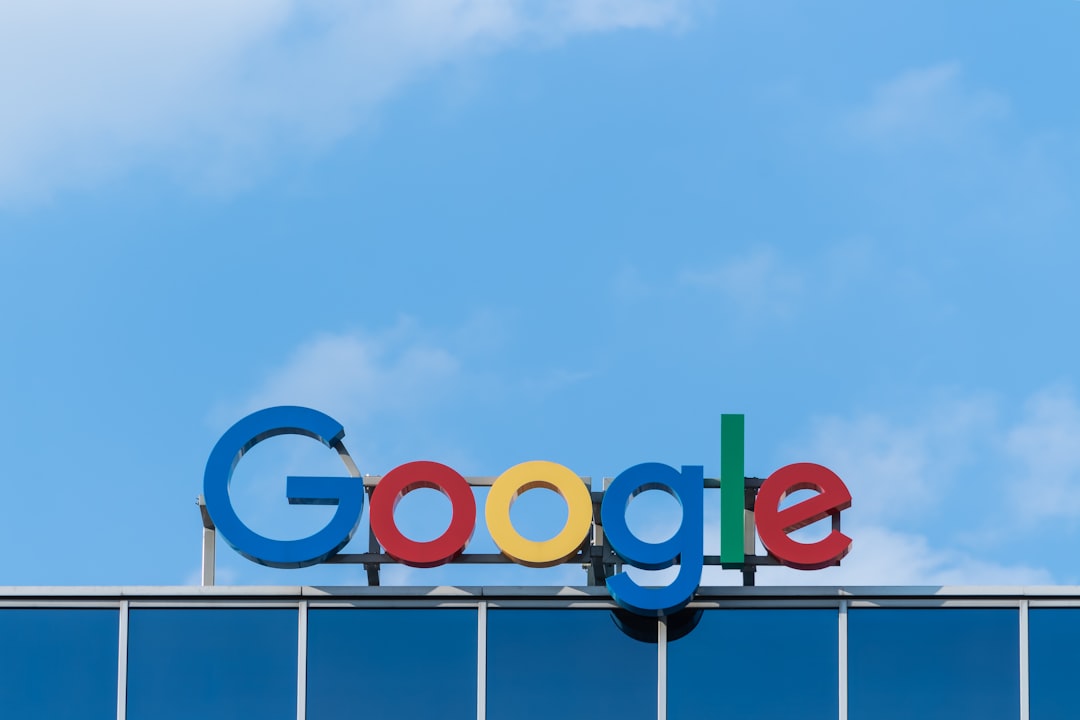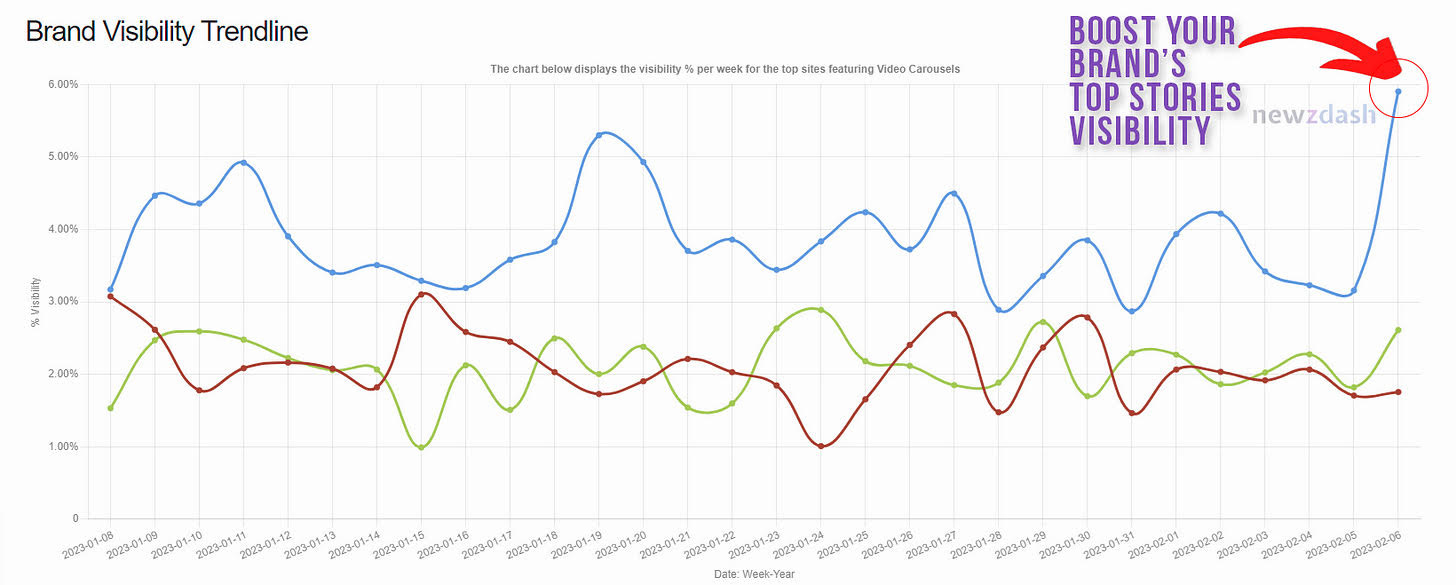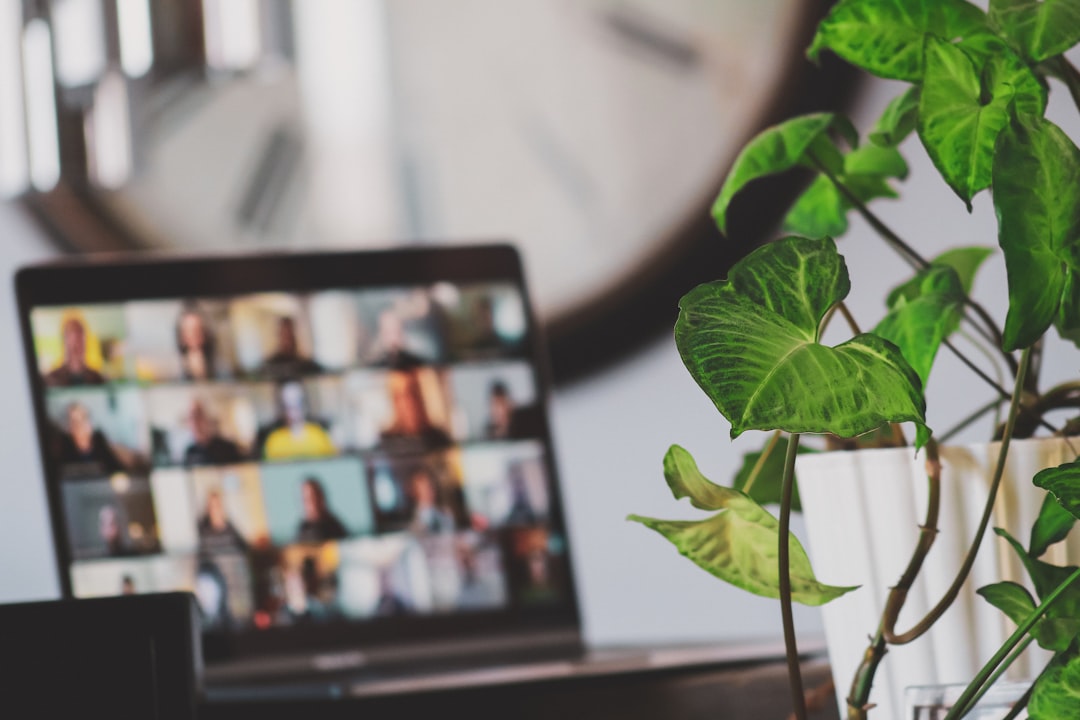Ask a News SEO: In a SGE world, what opportunities exist for publishers?
Christina Passariello (The Washington Post), Lily Ray (Amsive Digital) and Louisa Frahm (ESPN) join WTF is SEO? newsletter to chat generative AI/SGE!
#SPONSORED
NewzDash: European Search Awards 2023 winner for Best SEO Suite
🚀 Revolutionize your workflow with personalized SEO tips, AI recommendations, ranking alerts, content gap analysis and more. Elevate your content game now!
Hello, and welcome back. Jessie & Shelby here with a collaboration issue! Jessie returns from a weekend of shows (Death Cab for Cutie), softball (where I, oops, didn’t quite get out of the way of a ball) and a vintage market (the way to my heart). Meanwhile, Shelby was nature’s snack, coming out of the Niagara Gorge with many, many bug bites.
This week: An all-star line-up joins us for an Ask a News SEO focused on the new Search Generative Experience and the impact generative AI will have on publishers. I’m so thrilled to share the expert tips and sage advice of our panel: Christina Passariello, technology editor for The Washington Post; Lily Ray, senior director of SEO and head of organic research for Amsive Digital and Louisa Frahm, SEO director for ESPN.
How worried should publishers be? What are the opportunities? What lessons are there from previous platform pivots or algorithm updates? Read on to find out.
Join our Slack community to chat SEO any time
Our community call is June 6! RSVP to save your spot.

WTF is SEO?: Following the news that it planned to make search more "visual, snackable, personal, and human," Google unveiled significant changes to its search results pages at the annual I/O conference on May 10.
The headline news is that on some queries, AI-generated responses will appear at the top of search results. To quote The Verge, Google is putting AI "front and center in the most valuable real estate on the internet: its existing search results."
Google says the Search Generative Experience, or AI-powered snapshots, will serve as a jumping-off point. Critics in the SEO space are thinking about how much real estate in results is now taken up by a Google product.
So let's talk about what this will mean for publishers.
Christina Passariello: Clearly, we see that generative AI is changing the way people get information extremely quickly, and that definitely has implications for journalism. We've been in this rapidly changing landscape for 20 years now. Many people are comparing generative AI to the advent of the internet.
The news industry has grown and adapted so much. We’re in a much better place now than we were 20 years ago in terms of knowing how to anticipate, adapt to and figuring out what opportunities they create.
We are approaching this with a bold mindset. We’re positioning ourselves at The (Washington) Post to navigate the fast changes across the digital landscape.
We brought together a group of teams across the Post — from product and engineering to news and other divisions — to work closely together, to identify innovative opportunities and understand the risks about how people might interpret information.
Louisa Frahm: The new era of AI is quickly evolving. I think it's important for all publishers to have initial talks with their editorial stakeholders about which types of content could embrace AI technology to connect with target audiences. It’s crucial to use this technology selectively and responsibly, to ensure that your brand’s journalistic integrity stays intact.
At ESPN, we’re starting to explore using AI technology for certain types of game recaps and list-based stories that don't require expert knowledge or commentary. AI could be a useful tool in reporting basic facts and takeaways around teams, players and sporting events.
Screenshots of the new Search Generative Experience have made me reflect on previous Google behaviour with big event nights like the Oscars. During tentpole events over the past few years, Google has been taking over more and more of that valuable first page real estate during prime live windows. Sometimes, the news-friendly Top Stories carousel is nowhere to be found, or very far down the page. On certain topics, it’s become harder and harder for non-knowledge graph material to pop out.
Even though I’m excited about this new tool, SGE has also made me question how we will effectively hit our Top Stories carousel target in the future. There's going to be a lot more noise to sift through. How can news articles stand out amongst the new features?
It will be really crucial to keep an eye on overall visibility of stories as the SGE interface and results continue to evolve over time.
Lily Ray: I think we're all a little bit cautious and a little bit concerned for certain publications, but I’m actually really excited to see the opportunities.
Google didn't just roll out one new feature.
They're rolling out all kinds of new features and are not entirely clear about how often for which queries it will be triggered on. We do know that it won't be triggered for Your Money or Your Life queries, whatever that means, in some cases. That's a very broad category — there's a lot of stuff that could potentially fall into Your Money or Your Life .
Historically, Google has said news and political events are Your Money or Your Life.
Does that just mean that it's off-limits for search-generated answers? We don't really know yet.
But along with this news, Google did make some announcements that are really big opportunities for publications like Google's new Perspectives feature with individual contributors and experts and the Helpful Content update.
There's all kinds of other things happening, too with video, Google Discover, and there’s still Google News.
It’s just a richer search experience with a lot of different places for searchers to go.
There's definitely doom and gloom on the horizon, but I think there are a lot of great opportunities for publishers as well.
WTF is SEO?: Google Discover is often thought of as a black box. But there’s a new opportunity for us to really hone in on the author and the expertise side of Discover. Where do you see author expertise on the Google Discover side going?
Lily Ray: I've actually been living in Google Discover for the last few months. Almost exclusively.
We (Amsive Digital) started offering Google Discover audits, which has been really fun and exciting because it's quite different from SEO.
I’m not sure — Google Discover — they’re doing that much more on the search and SEO side. But if you read between the lines on changes to Google News, Discover and Search, they’re really invested in individual experience and expertise. It’s good news for companies and publishers that do really work with expert authors and enthusiasts.
There’s a lot of opportunities here.
The more you give your brand staff a real, true voice with opinions and perspectives, I think you’ll do just great.
Louisa Frahm: At ESPN, we’re also conducting a Google Discover audit to determine which topics and sports resonate the most with our platform audience. With the final results of that analysis, we hope to hone in on prime themes that can help us boost our Google E.E.A.T profile over time.
One very actionable thing publishers can do to maximize E.E.A.T is zone in on author pages. We want to elevate the experts that we have on staff and make it crystal clear to all Google platforms that our content stands out from the pack.
Author pages should be easy to find on your site and updated regularly. They can amplify your digital footprint to Google and users by showcasing your breadth of expertise on a variety of topics.
On a user experience basis, it’s also important to highlight your search-friendly authors within article headlines for different platforms. For example, when we put out mock drafts from our in-house experts, we make sure that Google and users are aware that we’re offering insider knowledge that they can’t get anywhere else.
Christina Passariello: Pew reported that 60 percent of Americans have heard of ChatGPT, and it only launched six months ago. That's pretty remarkable.
Whether it's Google, ChatGPT, Bing or other applications of generative AI, publishers should be thinking about it from the audience perspective. There is going to be a flood of information. There will be so much information presented to people.
And one of the real flaws so far is not being able to trace back the source of information.
So there's going to be an increased need on behalf of readers to understand where their information is coming from and why they should trust it.
At The Post, that’s where we feel we can play a strong role because our mission is to put out trustworthy information.
WTF is SEO?: What should publishers consider when it comes to traffic and their metrics of success?
Christina Passariello: We have witnessed a long history of tech companies making decisions about their algorithms or how their technology operates that give the news industry whiplash.
As an industry, we've all matured and gotten smarter in the last 20 years. At The Post, our strategy is to target and connect with our audiences on whatever platform they use the most
It's truly a multifaceted and multidimensional approach. Hopefully giving them lots of reasons to come see us on our own site or on the app, but also meeting them on Google search, Reddit, Instagram, which is a big platform for us, or TikTok.
So really just being open minded and trying to meet the audiences where they are.
WTF is SEO?: What lessons should publishers be thinking about from previous platform pivots or algorithm updates?
Christina Passariello: Take the initiative and be proactive with a strategy — whether that’s around audience or innovation.
We’ve created an AI hub that brings together our top minds from all of the different departments at The Post. We recently convened a hackathon with a bunch of our teams around the newsroom to brainstorm new ways that we could use the different kinds of technological changes. We’re now experimenting with a couple of the ideas that came out of that.
Louisa Frahm: I strongly believe in promoting education in all newsrooms, especially when new technology is in the mix.
Before rolling out a giant AI strategy, it's important to remember how many different types of people you're working with in a newsroom.
I would start at a very simple level and create a deck that demystifies AI. Before making radical shifts in strategy, it’s important to break down unfamiliar concepts into easy to understand terms, to make it clear how new elements could impact the business at large.
To put more people at ease with the latest algorithm shift or technological development, it’s helpful to create a foundation of knowledge, to foster trust and boost newsroom rapport.
SEO strategists are used to technology, but we work with a lot of traditional journalists who come from a totally different world. AI isn't their natural space. It’s important to educate colleagues with best practices and promote why new techniques aren’t scary (but exciting!).
Lily Ray: Something we’re working on a lot lately is getting the most bang for your buck with the content that you are creating.
A funny trend that happened a couple of years ago was Google trying to get its feet wet with having Stories (Google Web Stories). A lot of publishers tried to make them and abruptly stopped when they realized it was not a great use of time.
But maybe there are things that you're already doing that you're not getting the most benefit from. So, for example, I talked to a publisher site last week where they have a really great blog strategy, and then they have someone that's basically talking about the same thing as what's on the blog on TikTok.
But there wasn't a connection there.
They weren't embedding the TikTok video on the blog or referencing the blog in the video. Are you taking that TikTok video and putting it on YouTube as well? Google's obviously pushing YouTube shorts a lot lately.
Can you take what you’re already doing and just integrate it better? That’s a big opportunity for publishers.
WTF is SEO?: What advice would you give to others right now?
Christina Passariello: I can literally remember when our days were structured around print deadlines. I remember the industry being resistant to the change that the internet was bringing.
One of the things that I love about our technology team at The Post is that it's a really open-minded team.
I think, maybe because they are constantly covering change, they’re not resistant to it in terms of how they do their work. That’s such an important skill to have as a journalist now: being open-minded about the change and experimenting, see what ways it makes your job better
Nobody wants to go back to transcribing your interviews, right? Technology can help us in how we do journalism. And with generative AI, it’s just now getting kicked into high gear.
There’s potential that it brings for us, augmenting the work we do with our reporting and bringing the truth. Hopefully it allows us to connect with more audiences or connect with people in different ways
Louisa Frahm: In the media and technology industries, the only constant is change. Our professional world is ever evolving and not for the faint of heart. We’ve chosen this path because we connect with that frenetic energy and pace.
My advice to news SEO folks is to keep an open mind and be adaptable. Do your research. Stay on top of external industry updates and report pertinent information back to your internal teams, to bolster confidence and enthusiasm.
Get your editorial stakeholders interested in this type of work. That buy-in could really benefit you later, if your ideas on evolving topics turn into actionable strategies.
As industry updates swirl, you can always rely on your search foundation. Don’t let external factors impact the best practices that guide your work in the newsroom. Outside developments shouldn’t shake up your core editorial objectives. Take a deep breath, dissect the data and embrace the unknown. We got this!
Lily Ray: A lot of what I'm learning lately is to approach these things with enthusiasm and an open mind.
Of course, a lot of them can be a little bit scary at times, but there's just so much potential if you kind of get excited about how you can help people connect to the information and the resources of the products that my clients have? There are just so many endless opportunities and so much data available to us.
Always pull the data out. If you have a theory, go get that data and do the research and figure out what's actually happening. Then make conclusions or ideas about what's happening. Knowing how to get the data, which data to get, getting excited about rabbit holes — I think it's really fun.
This presents a lot of new opportunities for our industry. So I'm personally really excited.
#SPONSORED - The classifieds
Double the organic traffic to your digital media and content property with SODP's Publisher SEO online course. Use code WTFISSEO for 20% off any plan!
Get your company in front of more than 6,500 writers, editors and digital marketers working in news and publishing. Sponsor the WTF is SEO? newsletter!
What did you think of this week's newsletter?
(Click to leave feedback.)
RECOMMENDED READING
🤔 Search Engine Roundtable: Google Search Generative Experience early complaints and responses.
seoClarity: Navigating Google’s SGE: Your preparation guide.
🔎 Cyrus Shepard: 7 search categories that don’t trigger AI results — at least not often/consistently.
😎 Search Engine Land: How to establish your brand entity for SEO: A 5-step guide.
📈 Gus Pelogia: How product manager principles can make you a better SEO.
🧪 SEOTesting: Top 10 AI tools to improve your SEO workflow.
CATHCH UP: Last week’s newsletter
Have something you’d like us to discuss? Send us a note on Twitter (Jessie or Shelby) or to our email: seoforjournalism@gmail.com. Join our Slack community to chat SEO any time. We’re on Facebook and Instagram, too.
Written by Jessie Willms and Shelby Blackley






